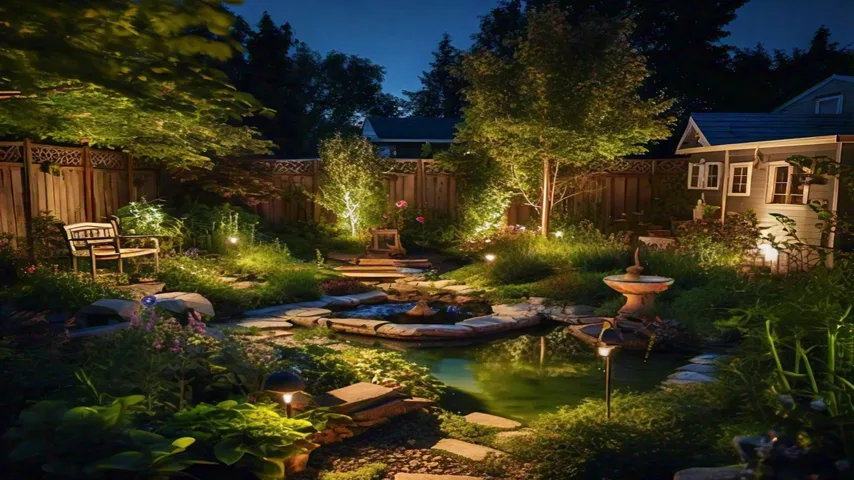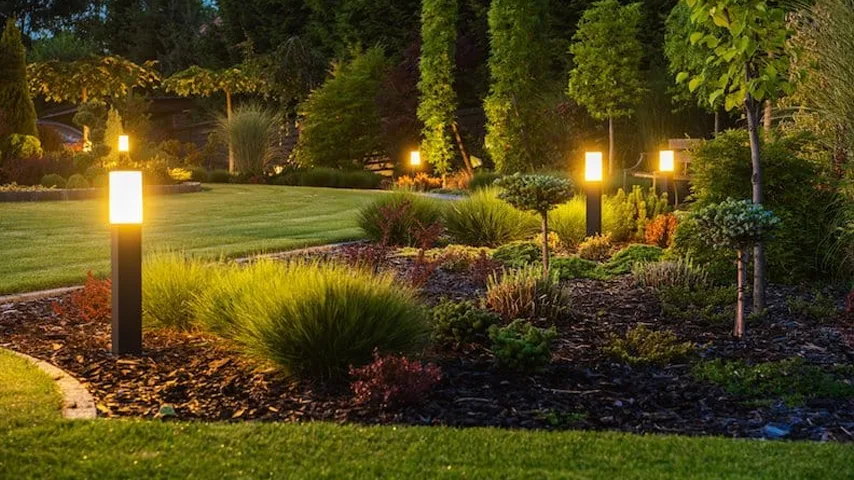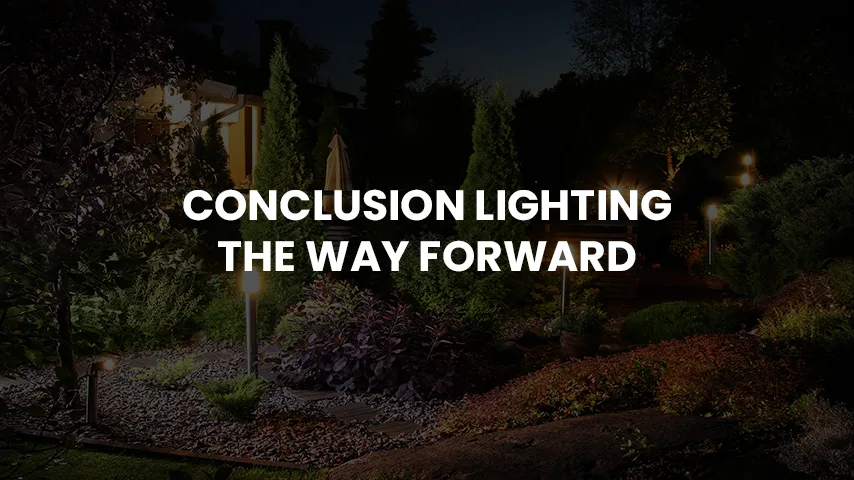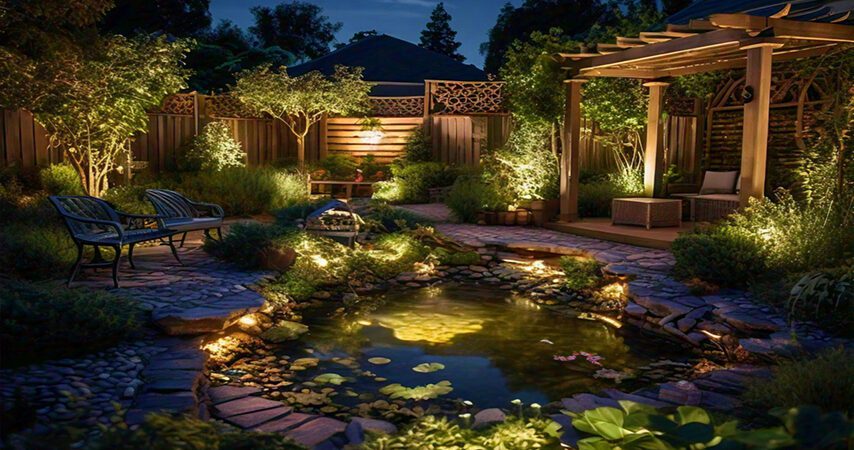When it comes to enhancing the aesthetic and security of your home’s exterior, choosing the right type of landscape lighting is crucial. Homeowners often find themselves weighing the pros and cons of solar and versus wired landscape lighting systems. Both have their unique benefits and limitations, which can make the decision challenging. This comprehensive guide aims to demystify the two options, providing you with detailed insights into each to help you make an informed choice that best fits your needs and preferences.

Understanding the Basics Solar vs. Wired Landscape Lighting
Solar Landscape Lighting: This system captures sunlight using solar panels and converts it into electrical energy, which is then stored in batteries. At night, these batteries power the lights. Solar lighting stands out for its eco-friendliness and easy installation, requiring no wiring or significant changes to your landscape.
Wired Landscape Lighting: Also known as hardwired lighting, this option involves connecting lights directly to your home’s electrical system or through a low-voltage transformer. Wired lighting is renowned for its reliability and its capability to handle higher wattages, allowing for brighter and more consistent light output.

Detailed Comparison Pros and Cons of Each System
Pros of Solar Landscape Lighting
- Eco-Friendly: Solar lights use renewable energy, making them an environmentally conscious choice that helps reduce your carbon footprint.
- Ease of Installation: These lights can be installed anywhere they can receive direct sunlight, without the need for digging trenches or laying wires, making them less disruptive to install.
- Cost-Effective: After the initial investment, solar lights have minimal operational costs since they use free solar energy, leading to savings on electricity bills.
Cons of Solar Landscape Lighting
- Dependent on Weather Conditions: Their performance is heavily dependent on sunlight availability, meaning they can be less effective in cloudy or rainy weather or in shaded areas.
- Lower Light Output: Solar lights generally provide less intense light compared to wired options, which might not be adequate for all outdoor lighting needs.
Pros of Wired Landscape Lighting
- Consistent and Reliable Lighting: Wired lights provide steady and powerful illumination that doesn’t vary with weather conditions, making them ideal for essential security lighting.
- High Customizability: This option supports a wide range of lighting fixtures and intensities, allowing for tailored lighting designs that can enhance architectural features or landscape details effectively.
- Durability and Longevity: Wired systems are generally more robust and better suited for permanent outdoor installations, capable of withstanding various environmental conditions.
Cons of Wired Landscape Lighting
- Complex Installation: Requires professional installation due to the electrical work involved, which can be costly and disruptive to your property.
- Higher Operational Costs: These systems increase your electricity consumption, resulting in higher utility bills and ongoing costs over time.

Installation and Maintenance Considerations
Installing solar lighting is straightforward; the units need to be placed in locations that receive sufficient sunlight during the day. It is a quick, DIY-friendly project that does not disrupt your landscape. Maintenance mostly involves cleaning the solar panels occasionally and replacing batteries every few years.
In contrast, wired lighting systems require a more involved installation process that typically needs professional handling to integrate safely into your home’s existing electrical system. Maintenance for wired systems might include checking connections, replacing bulbs, and ensuring that the wiring remains protected from the elements.
Cost Analysis Initial and Ongoing Expenses
The initial cost of solar landscape lighting might be higher than some wired systems, especially when opting for high-quality, durable models. However, the lack of ongoing electricity costs makes solar lights more economical over time. Wired systems, while potentially less expensive initially depending on the type of fixtures chosen, will incur continuous costs through your electric bill. Additionally, you might incur maintenance or replacement costs if parts wear out or sustain damage
Choosing the Right Type for Your Landscape
When deciding whether to install solar or wired landscape lighting, consider the specific needs of your property:
- For Large Properties or Key Security Areas: Wired lighting might be more appropriate due to its reliability and higher intensity.
- For Decorative or Ambient Lighting: Solar lights could be sufficient, especially in garden areas or along pathways where intensive lighting is not necessary.
- For Eco-Friendly Homeowners: Solar options align well with sustainability goals, offering a green solution to landscape lighting without sacrificing style.

Conclusion Lighting the Way Forward
Choosing between solar and wired landscape lighting comes down to assessing your property’s lighting needs, installation considerations, budget constraints, and environmental impact preferences. Both options and offer significant benefits, with solar providing a greener, cost-efficient solution, and wired offering more reliable and powerful lighting. By carefully considering the advantages and limitations of each, you can select a lighting solution that not only enhances the beauty and safety of your home but also aligns with your lifestyle and values.
For more ideas on how to integrate these lighting options into your lifestyle, or to explore other ways to enhance your living space, check out our Lifestyle category. Here, you’ll find a wealth of information on creating a home environment that aligns with your personal tastes and practical needs




